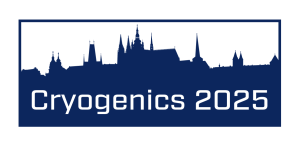Cavendish Laboratory
Since it was founded in 1874, the Cavendish Laboratory has been at the forefront of discovery in physics. The core of the Laboratory’s programme has been, and continues to be, experimental physics, supported by excellence in theory. The policy of the Department is to promote world-leading experimental and theoretical physics in all its diversity. At the same time, the Department encourages applied and collaborative research with our colleagues in other departments, with other Universities and particularly with industry.
Much of our research and teaching has been driven by the desire to understand physics at its most basic level. These topics include many of the ‘big questions’ in physics:
- the formation of the Universe as we know it, from life and exoplanets to the earliest phases of the Big Bang;
- new types of fundamental interactions and symmetries in particle physics; quantum communication and computing;
- strongly-correlated electron systems;
- ultra-low temperature physics and new states of matter;
- nanoscience;
- nanoscience;
But equally challenging are researches in other cognate disciplines where physics can make innovative and paradigm-changing contributions. These include:
- the application of physics to the biological, biomedical and life sciences.
- Most recently these have been joined by a major initiative in the physics of sustainability, emphasising the role that physics plays in addressing the major problems of the global sustainability of our planet.
Our seven research themes span the full range of research activities being carried out in the Laboratory and reflect national research priorities:
- Assembly and Function of Complex Systems
- Astrophysics
- Biological and Biomedical Physics
- Emergent Quantum Phenomena
- Energy Materials
- High Energy Physics
- Quantum Devices and Measurements
Many themes cover the work of more than one research group, encouraging new associations and cross-disciplinary collaboration. While the core of our research programme is in experimental physics, essential theoretical support is provided by theorists embedded within the astrophysics and high energy physics research groups, while the condensed matter theory group are strongly cross-disciplinary and contribute to most of the themes shown above.
Current collaborative partners at Cambridge include the Departments of Chemistry, of Material Sciences and Metallurgy, the Institute of Astronomy, the Department of Applied Mathematics and Theoretical Physics and the Schools of Biological Sciences, Clinical Medicine, and Technology. Companies such as Toshiba, Hitachi and AWE work closely with us. A number of staff have been outstandingly successful in exploiting new areas of research for the benefit of industry and society.





